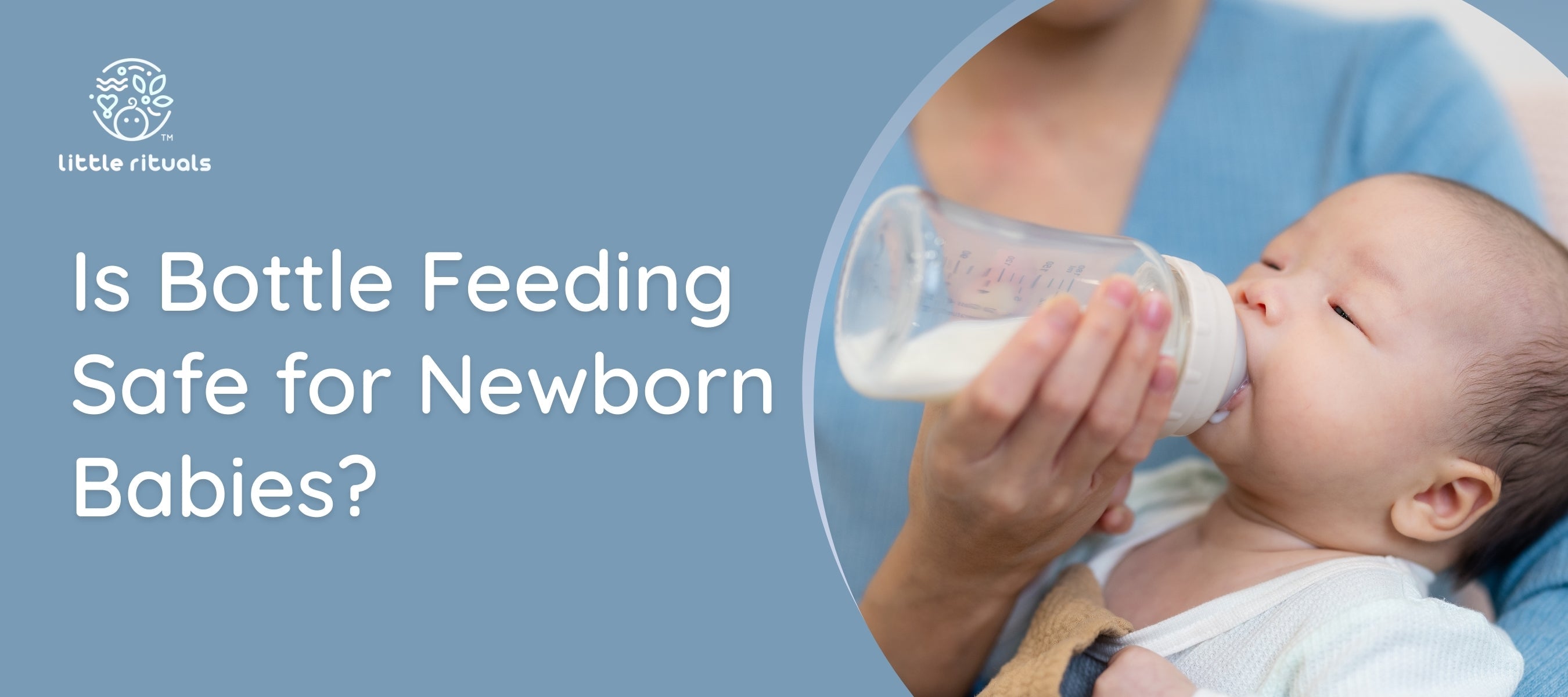
Calm the Cry: Proven Pediatric Tips for Comforting Colicky Babies
Colic can be a challenging experience for both babies and parents. It's a condition where an otherwise healthy infant cries excessively and frequently, often without any apparent reason. Colic usually starts when a baby is a few weeks old and can last for several months, typically resolving by the time the baby is six months old. Understanding what causes colic in babies, the identification of symptoms of colic in babies, and learning how to calm a colic baby are necessary steps in the management of this condition.
Fortunately, you are not the only one experiencing this, and there are plenty of ways you can help ease your colic baby. Let's discuss some of the colic causes, symptoms in babies, how to soothe a colic baby, and some good tips for these colic babies that can ease them and calm them.
What Causes Colic in Babies?
Before diving into how to soothe colicky babies, it’s important to understand what causes colic in babies. Although the exact cause of colic is unknown, there are a few factors that may contribute to its development.These include:
- Digestive System Immaturity: A baby's digestive system is still developing, and this immaturity can lead to discomfort and crying.
- Gas: Babies can swallow air while feeding, which may cause gas and discomfort.
- Food Sensitivities: Some babies may be sensitive to certain foods or formulas, leading to colic symptoms.
- Overstimulation: Newborns are sensitive to their environment, and excessive stimulation can lead to colic episodes.
- Parental Anxiety: Babies can pick up on parental stress and anxiety, which may contribute to colic.
Although there’s no one-size-fits-all explanation for colic, knowing these possible causes can help you feel more empowered to address the issue and provide comfort to your baby.

Colic Symptoms in Babies
Recognizing colic symptoms in babies is crucial for managing the condition. Common symptoms include:
- Intense Crying: Colic is characterized by intense, high-pitched crying that may last for several hours.
- Crying at the Same Time Each Day: Colic episodes often occur at the same time each day, typically in the late afternoon or evening.
- Clenched Fists: Babies with colic may clench their fists while crying.
- Knees Drawn to Chest: Babies may pull their knees up to their chest as if trying to relieve discomfort.
- Difficulty Sleeping: Colicky babies may have trouble falling asleep or staying asleep.
If your baby shows these symptoms and the crying persists, it’s a good idea to consult your pediatrician to rule out other medical conditions.
How Do Babies Get Colic?
Colic is a common condition, and many babies experience it to some degree. While the exact reasons why babies get colic are not fully understood, the factors mentioned earlier, such as digestive system immaturity, gas, and food sensitivities, play a significant role. Additionally, some babies may have a more sensitive temperament, making them more prone to colic.
How to Soothe Colic Baby
Soothing a colic baby can be challenging, but there are several strategies you can try to provide comfort:
- Gentle Rocking: Babies often feel comforted by gentle rocking motions. Try rocking your baby in your arms, a swing, or a baby carrier to help calm them down.
- Swaddling: Swaddling your baby in a soft, breathable blanket can mimic the feeling of being in the womb and can be very soothing.
- Warm Bath: A warm bath can relax your baby’s muscles and calm them down. Be sure to check the water temperature before placing your baby in the tub.
- Tummy Time: Giving your baby some tummy time while they are awake can help them pass gas and relieve some of the discomfort associated with colic.
- Use White Noise: Soft, consistent sounds like white noise, the sound of a vacuum, or a fan can be calming and help drown out other noises that might be overstimulating.
- Gripe Water or Gas Relief Drops: Some parents find that gripe water or gas relief drops can help relieve a colicky baby’s discomfort. Be sure to check with your pediatrician before using any over-the-counter remedies.
- Feed in a Calm Environment: If you're breastfeeding or bottle-feeding, try to feed your baby in a quiet, calm environment to avoid overstimulation, which could contribute to crying.
Must Read: Teething Timeline: When to Expect Your Baby's First Tooth
Why Do Babies Get Colic?
The exact reason why do babies get colic remains a mystery, but it's believed to be a combination of factors related to their developing bodies and nervous systems. Some researchers suggest that colic may be related to gastrointestinal discomfort, while others believe it may be linked to the baby's temperament and their ability to self-soothe. Regardless of the cause, it's essential to remember that colic is a temporary condition and usually resolves on its own.

Tips for Managing Colic Baby
Here are some additional tips for colic baby:
- Keep track: Tracking your baby's crying episodes, feeding times, and sleep patterns can help identify any potential triggers or patterns.
- Change Feeding Techniques: If you suspect gas is a problem, try feeding your baby in an upright position and burping them frequently.
- Dietary Adjustments: If you're breastfeeding, consider eliminating potential irritants from your diet, such as dairy or caffeine. If you're formula-feeding, consult your pediatrician about trying a different formula.
- Routine: Establishing a consistent daily routine can help provide structure and predictability for your baby.
- Seek Support: Caring for a colicky baby can be exhausting and stressful. Don't hesitate to seek support from family, friends, or a support group for parents of colicky babies.
- Consult Your Pediatrician: If you're concerned about your baby's crying or if colic symptoms persist, consult your pediatrician for guidance and support.
Conclusion
Dealing with colic can be a trying time for parents, but it's essential to remember that colic is a temporary condition. By understanding what causes colic in babies, recognizing colic symptoms in babies, and learning how to soothe a colic baby, you can provide comfort and relief to your little one. While it may take some trial and error to find the best strategies for your baby, patience and persistence will help you navigate this challenging phase. Always remember that you're not alone, and support is available to help you and your baby through this time.
Babies' delicate skin barriers need the right skincare products to prevent damage. Premium products like Little Rituals' Barrier Boost Body Lotion help keep your baby's delicate skin barrier intact while providing nourishment. With gentle formulations designed specifically for sensitive skin, Little Rituals is an excellent addition to your baby's pampering routine.
FAQs
How long does colic typically last?
Colic usually begins when a baby is a few weeks old and can last for several months, typically resolving by the time the baby is around six months old. However, every baby is different, and the duration of colic can vary.
Can changing my diet help reduce my baby's colic symptoms if I'm breastfeeding?
Yes, sometimes eliminating potential irritants from your diet, such as dairy, caffeine, or certain vegetables, can help reduce colic symptoms in breastfed babies. It's important to consult with your pediatrician before making any significant dietary changes.
Are there any long-term effects of colic on my baby?
Colic is a temporary condition and does not have any long-term effects on your baby's health. Once colic resolves, most babies go on to develop normally without any lasting issues related to colic.














